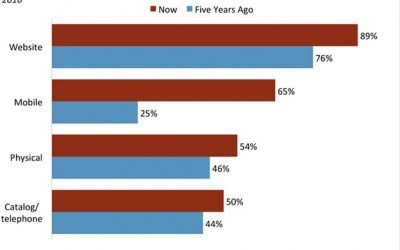
More people switching off from social media
Social media is very useful. It allows us to connect and stay in touch with others in our social circle, instantly view and access information and news, and enables businesses to target customers, push sales, and grow their brand.
However, there is a dark side to social media. It now appears, from many polls, that an increasing number of people from all demographics are lowering their use or switching off of social altogether. A study by Anxiety UK found that 60% of social users felt they needed to completely switch off phones and PCs in order to have a social media break. According to The Guardian, health groups have accused social media platforms of deepening young people’s feelings of inadequacy and unease.
Research by Attest shows that when asked the question, “Does social media have a positive influence on society?” 24% of Millennials agreed with the statement, and 31% of Ger Zer’s were in agreement. This suggests that it is getting harder and harder to reach these consumers through social media platforms.
For example, LUSH, a British cosmetics brand stopped posting on its social media accounts, citing the damaging effects social platforms had on mental health, especially for teens. High-end fashion house Bottega Veneta made a similar move and shut down its social presence – and there are others. These companies are substituting weekly, monthly, or quarterly email publications for their prior social media posts.
The way in which people are using social media is also changing. The focus has shifted from scrolling through the platforms to communicating through private and group messaging – eliminating advertisements altogether. This points to users no longer ‘liking‘ posts on Facebook, engaging less, and alerting advertisers that the social platforms are becoming less valuable
Social marketing is becoming passe’ and begs the question how do you reach customers?
This switching off of social media will force businesses to give more thought to their overall marketing strategy, including the use of traditional marketing methods.
Currently, 70% of businesses rely on social media for customer engagement, compared to 61% for email, 27% for TV/radio, and 24% for print ads. Over 90% of business owners or executives agree that companies that do not invest in social media marketing will be left behind, and 62% agree brands that do not have a ‘strong social presence’ will not succeed.
These beliefs do not however correspond to their experience in using social media marketing. Less than 50% of owners and executives feel that social marketing is “very effective” and do not believe their current social media strategy is appropriate – there is a gap between expectations and reality.
For example, in a Unity Marketing study, only 34% of managing executives of luxury goods rated Instagram as “very effective” and this was the most highly rated of all the platforms! Fewer than 20% rated Facebook ‘very effective” and 23% that Facebook was of “limited effectiveness”. Marketers desire immediate impact, while consumers want to learn about brands and engage with them. Unlike traditional push advertising, social media users expect to be in control, and interact on their own, not be force-fed by the brand.
Burberry and Lululemon are brands that have mastered social and use videos for creating meaningful content and connections. They place customer-service and support staff within the social media department. That human connection pays off, with nearly 80% of consumers surveyed saying if they have a positive experience on social they are likely to buy from that brand.
4M Performance believes social media marketing must be purpose-based. We advocate the use of social platforms that are aligned with your target market and are interactive in connecting with, and supporting, the consumer.





0 Comments